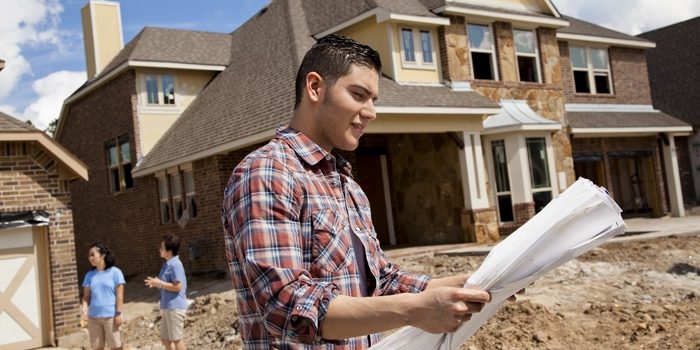Building a new home is both an exciting and nerve-racking experience. Some days everything will run like clockwork and it will start looking like you might even come in under budget. However, when it seems like a new build is going exactly to plan, it is easy to become complacent. Delays that cost you a little extra time and money are manageable – after all, you can’t account for every possible eventuality. It’s the really catastrophic mistakes that could turn your dream of a new home into a nightmare, which should be avoided at all costs.
A single significant defect can bring the project to a screeching to a halt, leaving you feeling that your plans for a new home are dead in the water. When it comes to building a new home, planning is everything. Before any work begins, you should have a plan that allows you to foresee potentially costly problems and avoid disaster.
Preconstruction Permits
Before constructing your new home, you will need the correct permits. In all cases you will need a building permit; however, in some cases you will also need planning permission. A building permit allows you to carry out construction. A planning permit may be needed in order to ensure that your new build conforms to land usage and development conditions, as dictated by your local council. To find out if you require planning permission, you can contact your local council; or the Department of Environment, Land, Water and Planning (DELWP). You must ensure that you have planning permission, if required, before applying for a building permit. It is best to find out from your council so that you can apply for both permits together.
Construction Inspections
You could think of Construction stage inspections as milestones for building your new home, with inspections carried out along each step of the way, to give you the confidence of knowing that all work meets required standards. These staged inspections are usually conducted at the five main stages of: Slab down (or base stage), Frame, Lock-up (sometimes called pre-plaster), Fit-out and Practical Completion or at Handover.
From your foundations to framing and brickwork, right up to a final inspection, everything is thoroughly checked by an experienced building inspector. The more detailed the inspection, the less risk you run of finding major problems post-construction.
Choosing a Building Inspector
The benefit of construction inspections relies heavily on the Building Inspector you choose. For instance, a Building Inspector who has learned the trade in a classroom will have less experience than one who is also a qualified builder. A Building Inspector who is also a qualified builder can identify defects which could compromise the structural integrity of your home. Building your new home with confidence is not a goal you can reach on your own. You need the support of construction specialists, so that you know your home is in good hands.
Houspect hire only the best Building Inspectors in the industry. All our inspectors are qualified builders. Our tailored inspections provide home owners with detailed reports on every aspect of construction. Firstly, our inspection methodology compares the construction on-site to the drawings and specifications, secondly, to the Australian Standards and Tolerances, and thirdly, to satisfactory standards of workmanship. All defects and unsatisfactory work must be reported, especially those which could compromise the structural integrity of your home. In most cases we deliver your building report within 24 hours of inspection, allowing you to meet important deadlines without unnecessary delays. You can consult with Houspect and rely on us to help you when you are building a home.







